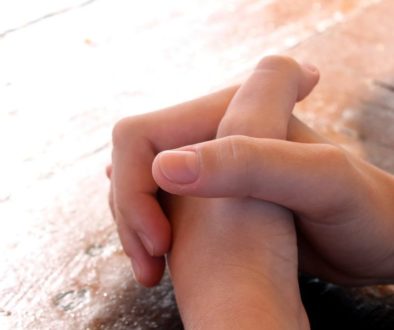Illuminations 80 – Reasons We Blame or Criticize Others
Why do we criticize others? Srila Bhaktisiddhanta Sarasvati Thakur said that we seek out the defects of others because of our “utter absence of humility.”
But why would we notice another’s faults (when we don’t have to) if it neither helps us, helps them or helps anybody? This question has always intrigued me. As I contemplated this question I discovered 37 answers (37 reasons we find fault with others). I share these answers with you in this newsletter.
As you read the list you may find it useful to note the reasons that most relate to you (and you may want to add others). My hope is that you will find this exercise in self-reflection to be helpful in taming the tendency to, as Srila Bhaktisiddhanta Sarasvati Thakur said, “pry into the defects of others.”
(Note: this is an exercise from my upcoming online course on forgiveness).
May you always think of Krishna,
Reasons We Blame or Criticize Others
- To make yourself look better, you make someone else look worse by criticizing them.
- When you see others as competitors you try to minimize them by criticizing them.
- Your dissatisfaction with whom you are (your lack of self-acceptance) results in your being threatened by others’ beauty, skill, intelligence, etc.
- You are reluctant to admit another’s high level of success, and to make them appear less successful you criticize them.
- You become intolerant of others’ failures (for various reasons) and you believe you can put them in their place, or even make them suffer, by informing others about how and why they failed.
- You compensate for your low self-esteem with arrogance, and it manifests (among other ways) as asserting your superiority through criticism.
- You have unfulfilled emotional needs that you expect others to fulfill, and when they don’t (or can’t) fulfill them, you criticize them.
- You try to relieve your hurt feelings through blame.
- Your ego is resistant to seeing or admitting your own mistakes. As such, you focus on others’ mistakes, shortcomings, or failures.
- You have a tendency to see the cup half empty , so you focus more on the bad in others than the good.
- You see your own faults in others, and because you are not healing them in yourself, you condemn others for having those faults (seeing their faults reminds you of your own faults).
- You blame others’ success (criticize their success) for your failings.
- You tend to see yourself as a victim and naturally criticize or condemn the victimizers.
- Your standards are the gold standard. In other words, you find it difficult to tolerate the words or actions of those that do not conform to your standards.
- You see the world as black and white and are critical of those who don’t agree with you.
- You have such a deep need to reform others that you let the world know what is wrong with those who don’t live up to your values or share your beliefs.
- You have beliefs that demonize people of other religions, ethnic groups or countries. Your criticism validates your beliefs and your righteousness.
- You are frustrated with life and you take it out by criticizing or blaming everyone and everything.
- You assume others’ motives to be selfish or sinister and are thus critical of their benevolent acts. (Assumptions of others’ motives is a projection of your own motives upon another person).
- You hear or read about the faults of others (we should question why we would want do this) and spread the news.
- You criticize those you feel are taking advantage of or exploiting you.
- You feel life is more unfair to you than it is to others and thus criticize the success of those who seem to have an unfair advantage, or else criticize them for not sharing their advantages with you.
- You feel entitled to special treatment or status, and when you don’t get it you become critical of those who should give it (or who should arrange for it to be given).
- You have a strong need to be right which manifests as a strong need to make others wrong.
- You are trying to get attention or communicate your feelings but you lack the proper skills to do this, and thus the only way to get attention is through criticism.
- You are an expert in a specific area(s) and therefore criticize or condemn others for their ignorance or inability.
- When you are misunderstood, your frustration manifests as criticism of other’s lack of ability or intelligence to understand you.
- You feel rejected by someone through their words or behavior and you condemn them for rejecting you.
- Out of revenge, you want to shame or humiliate someone to get even with them.
- You are frustrated and angry at a specific family, group, club, organization or company (or the world) for what you deem as ill or unfair behavior, and thus bad mouth them.
- You defend yourself by criticizing those who criticize you.
- You criticize those who try to control, dictate, or tell you how to live.
- You criticize those who have authority in your organization when you deem their actions are incapable of solving the organization’s problems, are insensitive to the needs of the organization’s members, are out of alignment with the organizations purposes or lack insightful thinking and future planning.
- You criticize those who try to help you because you are in denial that you have the problem or insufficiency they suggest you work on.
- You are not appreciated for your hard work, skills, intelligence, or other contributions, and you criticize those whose duty you believe it is to appreciate you (boss, parent, spouse, etc.).
- Another person gets the recognition that you expected (or needed).
37.Your lack of humility makes it impossible to stop being critical of others. If there are causes of your criticisms not mentioned here that relate to you, please list them and also send them to me.
Write down the realizations, insights, understandings and epiphanies, if any, you got from doing this exercise.
What different attitudes, perceptions or behavior can you adopt to overcome these causes of criticism and blame?
Isn’t half full when you are more positive and half empty when you are more negative?


